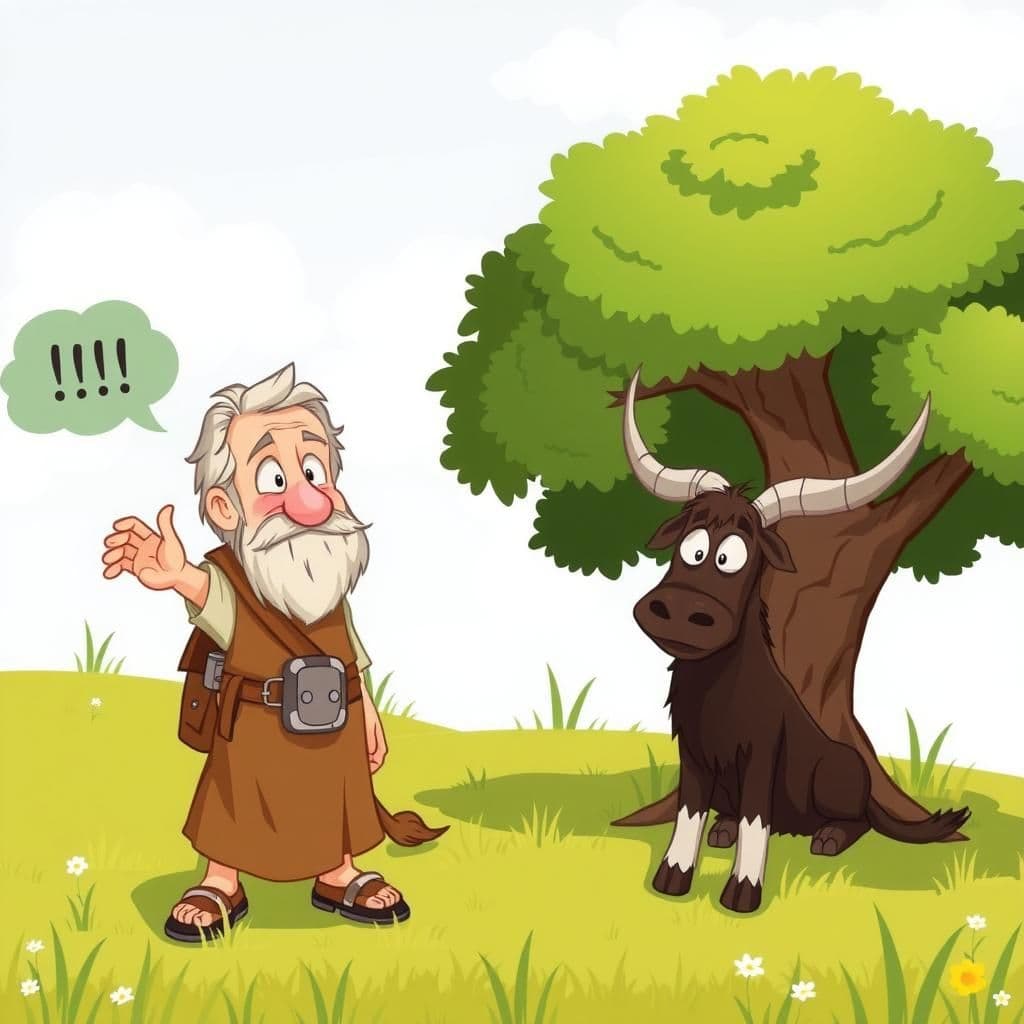The Ass and the Old Shepherd

Story Summary
In the engaging moral tale "The Ass and the Old Shepherd," a shepherd warns his lazy Ass about an approaching enemy, but the Ass dismisses the danger, claiming that a change in leadership won't improve his burdens. This well-known moral story illustrates that for the oppressed, a shift in power often leads to no real change in their lives, reflecting the sentiment that the poor merely exchange one master for another. Ultimately, it serves as an entertaining reminder that the struggles of the underprivileged remain constant, regardless of who rules.
Click to reveal the moral of the story
The moral of the story is that the oppressed often remain unchanged by a shift in power, as their circumstances do not improve regardless of who is in charge.
Historical Context
This fable, attributed to Aesop, highlights themes of apathy and resignation in social hierarchies, reflecting the struggles of the lower classes throughout history. Variations of this tale have appeared in numerous cultures, illustrating the universal sentiments of subservience and the futility of hope for change when power dynamics remain unchanged. The story serves as a poignant commentary on the nature of oppression, often retold in various forms to emphasize the satirical critique of authority and the plight of the marginalized.
Our Editors Opinion
This fable underscores the idea that those in lower socio-economic positions often face the same struggles regardless of who holds power, highlighting the futility of political change for the disenfranchised. In modern life, a worker in a corporation may experience this when a new CEO is appointed; despite a change in leadership, their day-to-day responsibilities and challenges remain unchanged, reflecting the reality that systemic issues often persist regardless of who is in charge.
You May Also Like

The Goat and the Ass
In "The Goat and the Ass," a story often shared as a childhood tale with moral lessons, a Goat envies the Ass for its better food and persuades it to pretend to be ill to escape hard labor. The Ass follows this misguided advice, injuring itself in a ditch, which ultimately leads to the Goat being killed to treat the Ass's wounds. This culturally significant moral story illustrates the dangers of envy and the consequences of poor decisions, making it a valuable lesson for kids and students alike.

The Ass Carrying the Image
In this life-changing story with a moral, an ass, proud and stubborn, mistakenly believes the crowd is admiring him as they bow before a wooden image he carries. Refusing to move until his driver chastises him, the tale highlights the folly of taking credit for the achievements and reverence due to others, making it a compelling quick read story with moral lessons. This creative moral story illustrates the importance of humility and recognizing the true sources of admiration.

The Salt Merchant and His Ass
In this quick moral story, a peddler's Ass attempts to lighten its load of salt by intentionally falling into a stream, but the clever peddler sees through this trick and replaces the salt with sponges. When the Ass falls again, the sponges absorb water, resulting in a double burden instead of relief. This folklore teaches a meaningful lesson on the consequences of deceit in life-changing stories with moral implications for students.
Other names for this story
The Lazy Ass's Wisdom, The Shepherd's Dilemma, A Change of Masters, The Ass's Indifference, The Panniers of Power, The Shepherd and His Ass, The Ass's Choice, Master or Master?
Did You Know?
This fable illustrates the idea that for the oppressed, the identity of the ruler may be irrelevant if their circumstances remain unchanged, highlighting the often grim reality that those who serve do so under varying degrees of exploitation.
Subscribe to Daily Stories
Get a new moral story in your inbox every day.